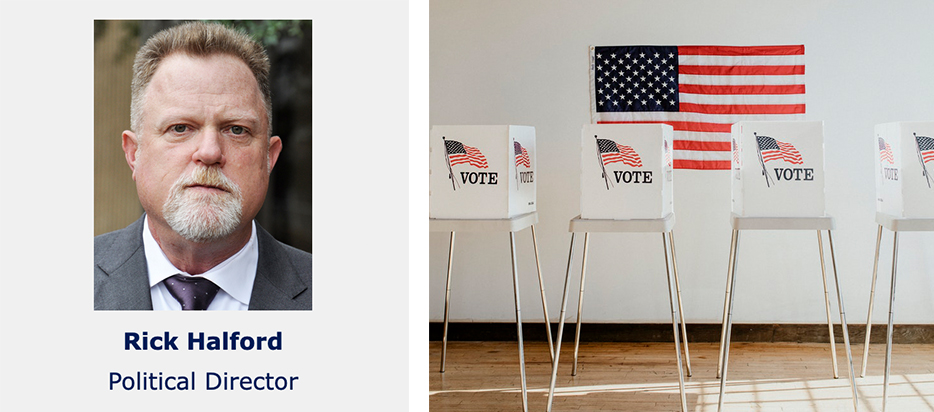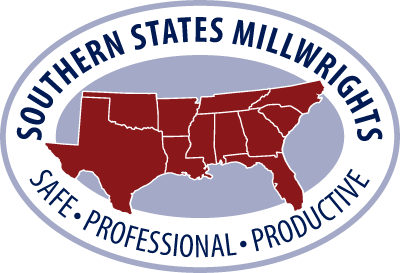
America is approaching Tuesday, November 8, 2022. In the 2022 midterm election year, all 435 seats in the U.S. House of Representatives and 35 of the 100 seats in the U.S. Senate will be up for vote. Thirty-nine state and territorial gubernatorial elections and numerous other state and local elections also will be held. These will be the first elections affected by the redistricting that followed the 2020 census.
I know that politics is not for all Southern States Millwright Regional Council members.
Most people also are tired of hearing that this is the most crucial election in recent years and are irritated that commercials hit the airwaves so early in the year.
Well, here it is in a nutshell. Voting is a constitutional right – a right that perhaps only those who have been deprived of it can fully appreciate. You decide to either be part of history or to sit on the sidelines without a voice.
Make a plan to get out to vote. Voting laws across several Southern states have changed. Here’s what you need to know:
- Have a government I.D. ready to show polling personnel and be ready to answer redundant questions that are already on your government-issued I.D.
- If you live in a big metropolitan area, take water, an umbrella (rain and shade), and snacks. New laws say that nobody can hand out water or be within 100 yards of people standing in line to vote. I have seen candidates’ tents where people were handing out water at the 100-yard mark. Taking advantage of free water is an option to also speak with a candidate or their staff.
- If you have children, find out whether you can bring them to the polls. Some states limit the number of children who can accompany a parent and/or have age limits for children (older kids are not allowed). New voting restrictions could bar children entirely. For instance, one of Arkansas’ new rules bans anyone except voters from coming within 100 feet of a polling place.
- Check where your polling station is located, especially in rural areas. Many states in the South have shut down numerous polling stations. You may have to drive 30 miles or more to vote. Metropolitan areas have decreased polling stations as well.
- Do your best when you go to sign your signature. Signing with a stylus on an electronic voting machine differs from signing with a pen. Some states have passed laws saying that if your signature does not match your voter registration card signature, they have the option to throw out your vote. If you are older like me, your signature might not match the one you registered with when you were 18 years old.
- Early voting has been cut in several states.
- In some states, absentee voting has changed; check your state’s early-voting and absentee-voting rules. Some areas are very strict when evaluating absentee and early ballots. Double-check everything before submitting because your vote could be thrown out for noncompliance.
Elections have consequences, and if you agree with these new changes and your candidate voted for these changes, great.
If you disagree with these changes, you can look up who voted for them in your state. If the candidate you voted into office voted in favor of these rules, drop them a line or vote for another candidate.
Tennessee voters know the November ballot initiative on constitutionalizing “Right to Work.” If you are not in favor of this falsely named amendment that hurts working people and unions, look up who voted for this amendment to be on the ballot, drop them a line, or vote for another candidate.
When the Tennesse and other state governments lure companies to their states, they encourage those companies to be non-union.
The Davis-Bacon prevailing-wage law will be on the chopping block again if certain candidates get elected into the federal government. The small margin of politicians who support Davis-Bacon could lose to candidates who support our opposition, the Associated Builders and Contractors (ABC).
Members who work on projects covered by Davis-Bacon know what is at stake. These worksites are TVA, Savannah River, Oak Ridge, NASA, airports, water-treatment plants, and hydroelectric facilities. Also, as of this year, any federal infrastructure project worth more than $35 million is covered by a project labor agreement (PLA) that requires fair wages and benefits.
Do not think this did not come with opposition from the ABC and the governors they have in their back pockets in our 11 states. Nine out of the 11 governors in our states signed on to a letter opposing PLAs.
Gov. Kay Ivey of Alabama opposes any PLA to the extent that she flew to Japan to discourage the PLA at the Toyota Mazda Manufacturing plant in Huntsville, Alabama. Alabama members who worked on this project: You paid for her flight, lodging, food, salary, and benefits – and those of some of her staff, too – while she lobbied for you and your family to lose a job and benefits.
Contact candidates for U.S. Congress in your area and ask if they support Davis-Bacon. Do not be surprised when, in their form-letter responses to you, many of them dance around a direct answer. Remember, our opposition is lobbying them with promises of campaign contributions.
We do know that U.S. Sen. Raphael Warnock of Georgia, who is up for re-election, is a Davis-Bacon supporter.
On the other hand, in West Virginia, where redistricting eliminated one of the state’s U.S. congressional districts, we lost a Davis-Bacon supporter. In a primary matchup between two current U.S. representatives from West Virginia, Rep. Alex Mooney, a Davis-Bacon opponent, defeated Rep. David McKinley, a Davis-Bacon supporter.
Research your candidates. Do they support living wages and benefits for working people? Know what amendments and other issues will be on the ballot in your state and research each item. Remember, have a plan to vote and set aside time to research your choices beforehand. As always, our union will send out information concerning labor issues and candidates who stand with working people as America gets closer to the mid-term elections.
